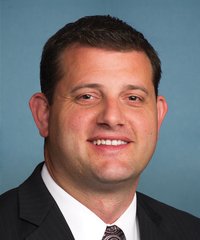
Congressman David G. Valadao was born and raised in Hanford, California in the center of the agriculturally rich Twenty-First Congressional District. As a lifelong resident of the Central Valley, he has been active in agriculture and dairy industry groups, as well as many local charities.
I believe that in order to save these important programs for future generations, they must be reformed. However, I do not support eliminating them and I do not support making any changes that would affect current retirees or anyone nearing retirement.
Today, Social Security, in combination with Medicare, makes up over one-third of all spending by the federal government and will continue to be one of the fastest growing areas in the federal budget. Without improvements, both Social Security and Medicare will be unable to fully meet the promises made to the next generation of retirees and will burden future generations with reduction in services and crushing tax increases. Even worse, without change, both programs risk complete collapse before our children and grandchildren ever receive a single benefit.
Our nation’s financial situation requires that we carefully examine the future of Medicare and Social Security. If we are to continue providing these safety nets for Americans, we must ensure the program's long-term sustainability.
As you know, any change will have consequences and should only be made after extensive research and deliberation. Congress must act in order to strengthen and preserve these vital programs.
In the meantime, it is a priority to me that government agencies such as the Social Security Administration are acting as good stewards of American’s personal information. After hearing of negligent actions by the Social Security Administration I introduced H.R. 624, the Social Security Number Fraud Prevention Act, which protects senior citizens, veterans, and children from identity theft by prohibiting government agencies from sending a document by mail containing and individual’s full social security number. H.R. 624 was signed into law on September 15, 2017.